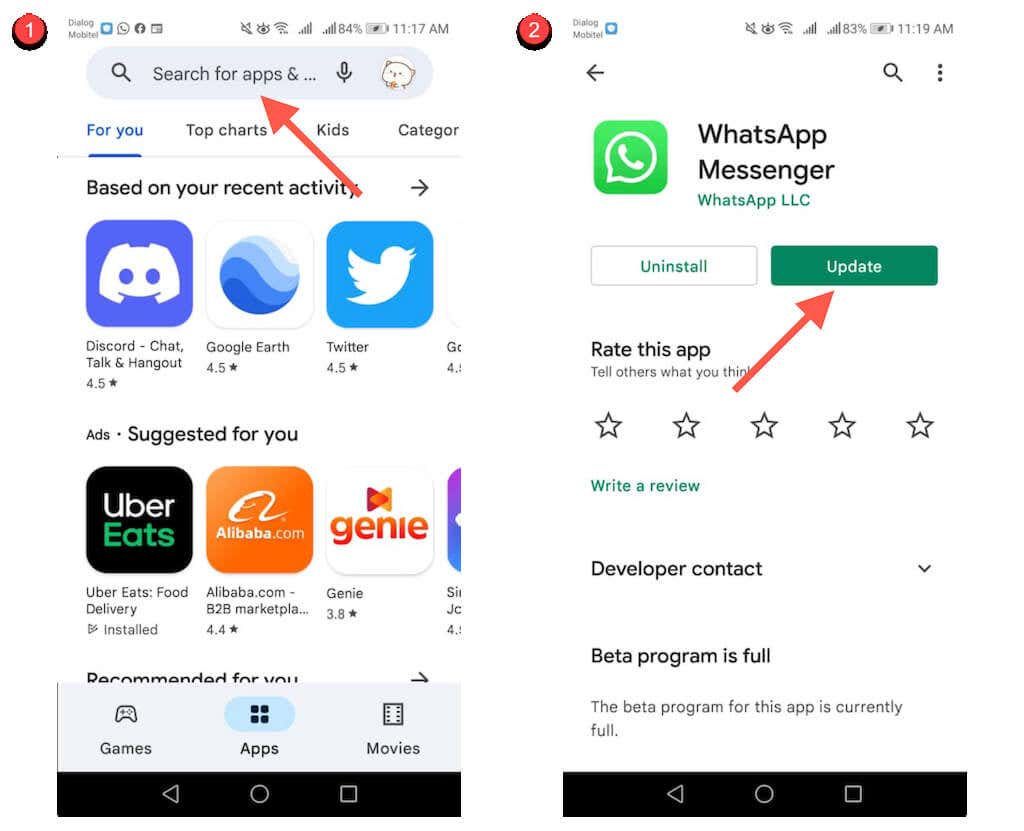Android is a widely popular operating system that is used by millions of people around the world. One of the key features of Android is the ability to download and use various apps from the Google Play Store. However, it’s important to note that these apps must be updated on a regular basis to keep them functioning properly.
The reality is that apps must be updated on a regular basis to keep them fresh and functioning. Just like you wouldn’t release an app with a known bug, updates keep your app secure and allow you to remove issues that come to your attention.
The aim of an update might be to fix bugs, but new features and bug fixes can be released together. The usual practice is to pay more attention to updates that keep the app more stable. Updates are also created to fix coding errors. While these issues don’t necessarily affect your phone’s security, they can lead to crashing apps or other problems.
In fact, if your Android phone is acting weird in any way, it’s always a good idea to check for updates. For that, open Google Play Store on your phone. Then, tap on the three-bar icon at the top-left side. Select My Apps & Games from it. You will see the available app updates listed under the Updates section.
Stagnant apps don’t survive. If you want to keep using your favorite apps, it’s important to keep them updated. Not only does this ensure that the app is functioning properly, but it also helps to keep your phone secure. Many app updates include security patches that address vulnerabilities in the app.
Updating your apps on Android is not just good practice, but it’s also necessary to keep your phone and apps functioning properly. By staying up to date with app updates, you can ensure that you’re getting the most out of your Android device and that you’re keeping your data and personal information safe and secure.

Is It OK To Not Update An App?
From a technical standpoint, it is technically possible to not update an app. However, it is not advisable to do so. Not updating your app can have several negative consequences.
Firstly, not updating your app may lead to security vulnerabilities. Hackers are always looking for ways to exploit weaknesses in software, and not updating your app leaves it open to attack. Regular updates help to patch these vulnerabilities and keep your app secure.
Secondly, not updating your app may lead to compatibility issues. As devices and operating systems evolve, your app may no longer function correctly on newer devices or newer versions of operating systems. Regular updates ensure that your app remains compatible with new technologies.
Thirdly, not updating your app may lead to a poor user experience. Users expect apps to be reliable, fast, and easy to use. If your app has bugs or performance issues, users may become frustrated and abandon your app in favor of competitors. Regular updates help to address these issues and improve the overall user experience.
In short, not updating your app is not recommended. Regular updates are necessary to keep your app secure, compatible, and user-friendly.
Why You Should Always Update Your Apps?
Updating your apps is crucial for several reasons. Firstly, it ensures that your app is running smoothly and efficiently. Updates often include bug fixes and improvements, which can increase the app’s stability and prevent it from crashing or malfunctioning.
Secondly, updates often introduce new features and functionality to the app. This means that you can access new tools and options that can enhance your user experience.
Thirdly, updates can improve the app’s security by addressing any vulnerabilities that may have been discovered. This can protect your personal information and prevent your device from being hacked or compromised.
Lastly, updating your apps can ensure that you are using the latest version of the app, which can improve compatibility with your device’s operating system. This can prevent any compatibility issues and ensure that the app works seamlessly with your device.
Updating your apps is essential for ensuring the smooth performance, security, and functionality of your device. It is recommended that you regularly check for updates and install them as soon as they become available.
What Happens If I Don’t Update My Phone Apps?
If you don’t update your phone apps, you may miss out on new features and improvements that can enhance your user experience. Additionally, outdated apps may become incompatible with newer versions of your phone’s operating system, leading to crashes and other issues. In some cases, outdated apps may even introduce security vulnerabilities that could be exploited by hackers or other malicious actors. Therefore, it’s important to regularly check for app updates and install them as soon as they become available to ensure that your phone remains stable, secure, and up-to-date.
Do Any Of My Apps Need Updating?
To check if any of your apps need updating, you can open the Google Play Store app on your phone. Once you’re in the app, tap on the three horizontal lines in the top-left corner to access the menu. From there, select “My apps & games.” This will bring up a list of all the apps installed on your device. If there are any updates available for your apps, they will be listed under the “Updates” tab. You can update all of your apps at once by tapping the “Update all” button, or you can update each app individually by tapping the “Update” button next to each app. It’s a good idea to keep your apps up-to-date to ensure that they’re running smoothly and that you have access to the latest features and security improvements.
Conclusion
Android is an ever-evolving platform that requires regular updates to keep it functioning at its best. App developers must prioritize updates to fix bugs, improve performance, and add new features. As users, it’s essential to keep our Android devices up-to-date to ensure optimal performance and security. Regularly checking for updates in the Google Play Store is a simple yet effective way to keep your Android phone running smoothly. By staying on top of updates, you can enjoy the latest features and ensure your device is secure and stable. So, don’t neglect those app updates – they are crucial for a seamless Android experience.








